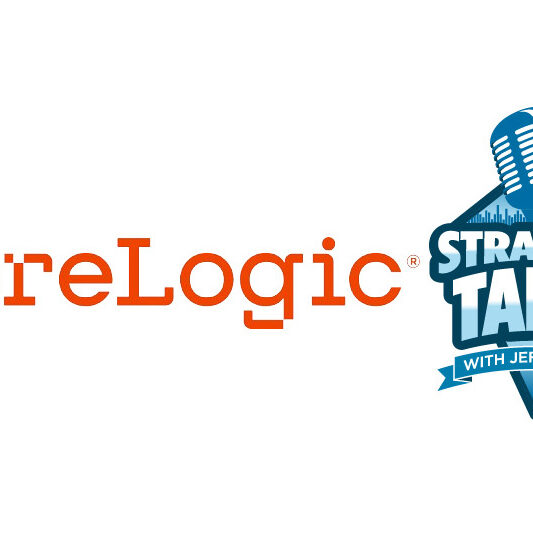Drip by Drip

By Al Ruggie and Joshua Rudin
When home and business owners face a plumbing issue on their property, whether it’s a leaky faucet, a clogged toilet, or a burst pipe, they want a trustworthy and skilled operator to come to their rescue. However, as disgusting as a property owner may already view their blackwater toilet leak, it can get a lot nastier when plumber referral fees are considered. The plumbing business can get downright dirty!
One of the significant reasons that referral fees complicate the process is that they are often hidden charges passed down to the customer in one form or another. This not only forces contractors to increase prices to compensate for the lead cost, but also creates a lack of transparency that can be a problem for operators who pride themselves on giving customers a fair and accurate price.
Additionally, the restoration company that does come to finish the job, as well as the homeowner, will now be allotted slightly less due to the referral fee than they would have received if the property owner called a full-service operation from the start!
Moreover, “plumber chaser” companies, as they are often called, are far more likely to lie, cheat, and steal while influencing property owners to assist them in defrauding their insurance company to benefit the contractor’s bottom line.
Basically, everyone but the plumber loses out when referral fee practices are taken to the extreme, and sadly, this has become an all-too-common practice in the industry today.
Narrowing the pipeline
In the plumbing business, where skill and trustworthiness are vital, the practice of plumber referral fees has emerged as a hot-button topic among industry professionals devoted to giving the customer the best value possible.
What are the implications of these fees, and how do they affect the relationships between plumbers, downstream companies and professionals, and property owners as well?
Understanding plumber referral fees
Plumber referral fees describe a practice where an industry-connected company, such as carpenters, roofers, drywallers, painters, mitigation specialists, or restoration companies, pay a plumber for the opportunity to do the rest of the work.
Consumers often don’t think of all the many services they will need help with after a flood or other water damage event. They tend to think of what caused the problem, be that a pipe burst or toilet leak, and assume when calling a plumber that this professional will be able to solve all the damage on their own at a responsible cost.
While this assumption makes sense from a property owner’s viewpoint, in reality, plumbers are often not licensed or trained in anything but their own trade. Home and business owners often don’t realize that the hole a plumber puts in their wall while searching for a water damage leak isn’t always a hole that they can fill themselves once they are done fixing it.
But the hole still needs to be filled, and because you already have the plumber on the job, it feels natural for consumers to let them tap their network of professionals to make the space look new again. When that happens, the plumber won’t necessarily contact the company that is most capable or most highly rated; they’ll contact the company that pays them the most for a referral fee to do the work.
At first glance, this may seem like a mutually beneficial business arrangement. Still, a closer look reveals a web of complexities that affect how plumbing professionals operate and interact within the industry.
A matter of trust
Trust is the backbone of the service industry no matter where on the spectrum the business falls. Service industry professionals rely heavily on their reputation as well as recommendations from peers. When referral fees enter the picture, the trust shared among industry specialists downstream becomes strained.
When a company pays for referrals from plumbers, their motivation is seen as profit-driven rather than based on the quality of service they can provide to the end user—the consumer.
If the referred company provides high-quality work, it tends not to become an issue, but when the work is subpar, the paid referral becomes a liability for both providers.
Poor quality work infuriates property owners, and then they feel doubly taken advantage of by paying more and getting less than what they expected in the end.
Additionally, contractors who provide high-quality work, but aren’t willing to pay exorbitant referral fees, may lose out on the job, or worse, ruin the relationship with the plumber who originated it. Moreover, plumbers who don’t charge these fees are at a disadvantage compared to their plumbing competition who does.
All these factors have led to a whirlwind of referral fees, with consumers and ethically guided contractors always on the losing end of this. This has resulted in profound distrust within the industry at every level of business operation.
The influence of referral fees
Referral fees are nothing new to the restoration industry, or service companies as a whole for that matter, but in recent years, the practice has gotten unruly and led to both consumers and contractors feeling cheated in the process.
The concept of a referral fee is rooted in logic. If you trust your plumber, then you should be able to trust the person that they refer you to when the job is above their head. But with the explosion of service industry provider specialization, very few consumers have already “got a guy” when it comes to plumbing, construction, or any other home service business.
In years past, consumers would have a local provider that they trusted for everything. Homeowners would have a guy that they have been using for years to fix the air conditioner, and a similar guy for the water heater, and the plumbing, and the roof, etc.
With the advent of the internet, consumers now tend to shop around for the best deal they can get a la carte on the services they need. This means they don’t develop the same relationship of trust with a provider over time that homeowners used to when they needed help in the home.
Referral fees went from being an affordable trust handoff between one local provider and another, to being a significant source of revenue, and plumbers are at the heart of this debacle.
Hidden costs result in price inflation
One of the fundamental drawbacks of plumber referral fees is their hidden nature. Customers are often unaware that a service provider, such as a restoration professional recommended to them, may have paid a substantial fee for that very recommendation. This lack of transparency can lead to price inflation and the passing of unnecessary expenses down to clients.
In a competitive environment where all contractors are vying for the same customers, companies may choose options to recoup these expenses, such as increasing their labor prices or line-item markups simply to recover the referral fees they’ve paid to get the job.
The outcome is a pricing structure that might not align with the actual market value of the services being provided, and the misalignment can be so extreme that even consumers ask about the costs of individual line items.
Leaking trust and fraud pressure buildup
Another way hidden referral fees influence the cost of a project and potentially cause higher levels of fraud is through project stuffing from disreputable “plumber chaser” restoration companies and other specialists. This tends to happen as a way of recouping the cost of the exorbitant referral fee paid to get the job.
Project stuffing can happen in a variety of ways, from leaving machinery on-site for longer than necessary and thus increasing line-item costs to outright fraud by influencing the claim through false damages that never existed.
These referral fees and the disreputable operators that use them to game the system will eventually result in reputational damage to all providers in the industry, not just the ones project stuffing.
Project stuffing is highly correlated to increased referral fees, and ultimately, both practices make it more difficult for reputable providers to operate. Additionally, these practices increase the risk to homeowners from false insurance claims, increased premiums, or potentially even dropping them from coverage.
Conclusively, this makes it harder for reputable providers to function in the marketplace. The last thing that high-quality service providers want is for this industry to become disreputable, taking on the same stigma that other sectors, such as used car salespeople, have shouldered for decades.
The future of referral fees and providers
While referral fees are already at an extreme level, this means there’s light at the end of the tunnel. At a certain point, when the referral fee becomes more than the job is worth, the plumbers charging these extremes will begin to face pressure from all sides—the provider (or lack of them,) the enraged consumer, and their own diminishing bottom line.
If the quality of work suffers, plumbers will face an avalanche of bad reviews that affect their revenues more than the increased fees can offset them. At this point, plumbers will either reduce fees or solidify relationships with the few connected providers who can afford them.
Given a long enough time period, this could lead to a stratification within the industry itself or to the collapse of this extortion approach to trading business. In either scenario, the opportunities for companies that offer trusted services at affordable rates will be easier to explore.
How service providers can still make waves
In an environment where restoration companies and other service providers compete, not just for customers but for access to them from plumbers, it becomes critical for these partnerships to be as mutually beneficial as possible.
Here are some ways to find the right plumbing companies for service providers to align with:
- Professional conduct. Look at the online reputation of a potential referral source to determine if this is a company that might fit well with your existing operations. If the company has a list of bad reviews, it might not be worth partnering together, no matter what the referral fee cost is.
- Clear communication. Service provider companies can and should use ease of communication as a factor in determining who to partner with. If the plumbing company can’t return a phone call, how will they be when functioning as the liaison between you and a potential customer?
- Existing network. Investigate the existing group of people, providers, and associations that a potential plumbing referral source already has. If they are groups that you wouldn’t want to work with or do business with, then this might not be the referral source your service provider company needs.
- Ethically trustworthy. It can be hard to determine easily if a potential plumbing referral source is ethically on the same page as your company, but this is also the type of information that finds its way into the light the quickest. Have a lengthy conversation with any potential plumbing referral sources and ensure everyone is on the same page.
Vetting your potential referral sources is as important as determining what the final referral fee will ultimately be, and doing so can save your business from financial turmoil or even ruin in the long run.
Capping it off
Unfortunately, for those who are committed to business as usual, it appears as though referral fees and the unethical environment that they inspire are here to stay. This means that restoration companies and other service providers must either find a way to play the game or a way around it to do business.
While this is a potential death knell for some contractors who refuse to participate, it might also be an opportunity for other service providers to find a niche to occupy and make their own.
Additionally, for those with the resources to stay in the game and provide high-quality work simultaneously, this can lead to an extraordinary increase in business if done correctly.
Referral fee systems like this can force out small providers lacking the resources to play at the same level. Still, it can also make them a more attractive option to a different demographic of the client pool looking for hidden gems, too.
Typically, industry stratification is good for those who can keep up with the pace of change and a way for companies straddling markets to find a profitable spot to land.
No matter what happens to the nature of referral fees, when the dust settles, service companies that go the extra mile for their customers will always have a reliable stream of business by being trustworthy providers in an industry of questionable ethics.
Al Ruggie is the marketing and business development director for ASAP Restoration. He has a proven record for growing businesses, both large and small, with strategic planning and targeted content that delivers results.
Joshua Rudin owns ASAP Restoration, LLC, and is a certified restorer. Before opening the doors in 2008, Rudin had been a successful entrepreneur in the restaurant industry, owning and running several thriving locations for over two decades. To reach Rudin, visit AsapRestoration247.com, call 602-515-7918, or email [email protected].












